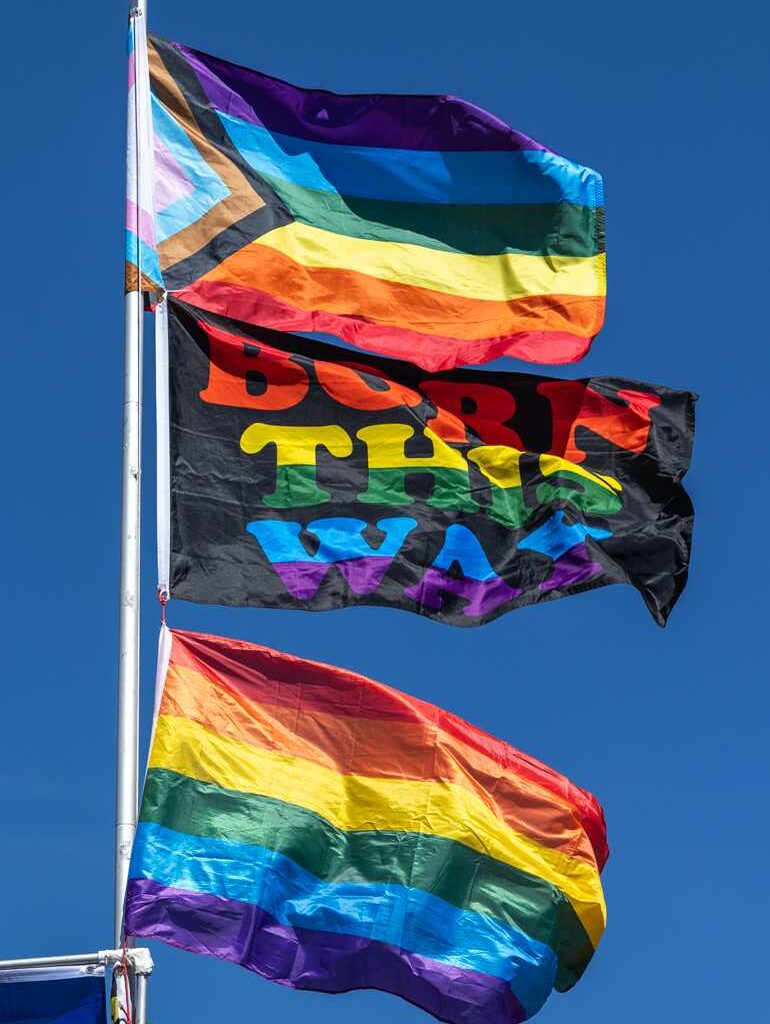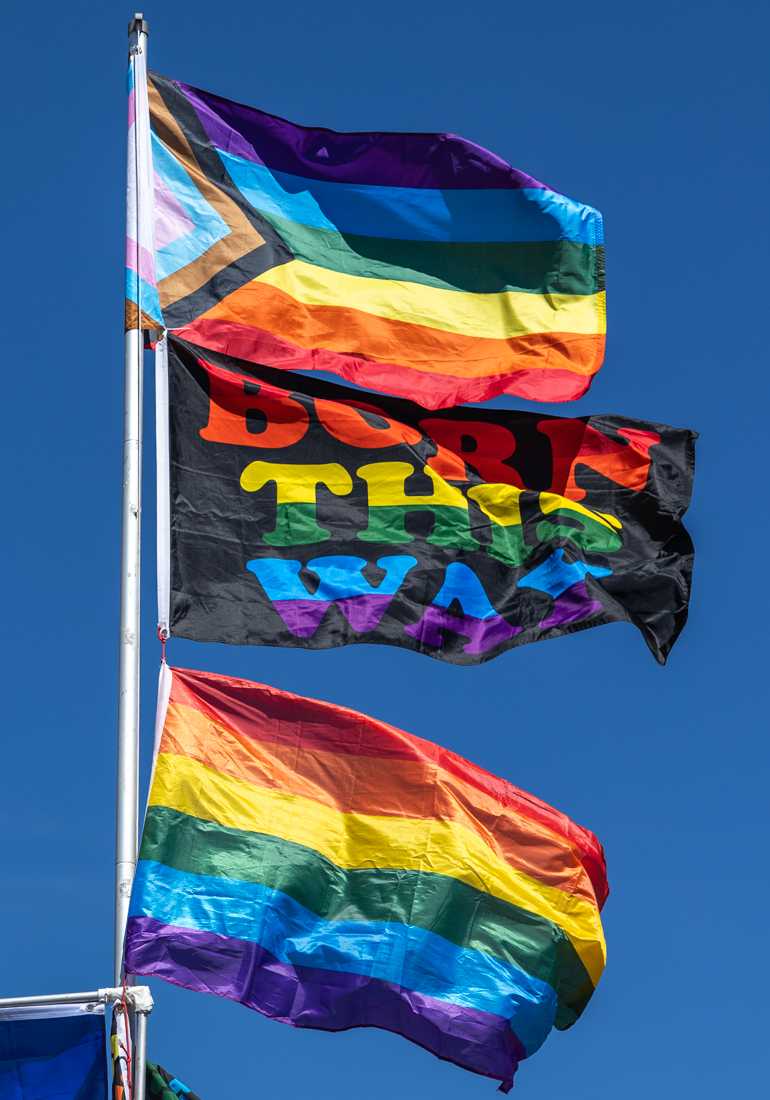June, although a significant time of the year to honor LGBTQ+ history and ongoing efforts for equality, is not a finite window for support.
One meaningful way to show allyship year-round is to read books that center LGBTQ+ voices as main characters, rather than limiting their presence to supporting roles. Doing so helps foster greater understanding of diverse identities and encourages empathy toward experiences that may differ from one’s own.
Below are three books I’ve enjoyed with main characters who identify with the LGBTQ+ community. For each book I’ve read, I note a book I’d like to read to further my understanding of queer experiences and social constructs.
“Nevada” by Imogen Binnie
As a certified cult classic, Binnie’s “Nevada” first came to my attention in January 2025 when it was added to Barnes & Nobles’ “Banned Books” section amid a surge in efforts to censor reading materials in the United States.
Book bans disproportionately affect books about LGBTQ+ characters. Perhaps this was reflected in my never having read a book with a transgender protagonist at the time. My purchase of “Nevada” — a beautifully messy book about a trans woman — could possibly be seen as a form of protest.
“Nevada” boasts 29-year-old protagonist Maria Griffiths, living in New York when she loses her job and gets broken up with — two events that inspire her to undertake a near-cross-country road trip. The plot becomes increasingly interesting when she meets James, a character questioning his gender while in a heterosexual relationship.
Maria has transitioned, and James hasn’t. Readers don’t see either character transition because, as Binnie said in the afterword, “… the mysterious in-between phase is the most salaciously interesting thing to people who don’t have to go through it, (so) I decided to cut it out.”
Binnie sees this as denying cisnormative approaches to honoring trans stories. Binnie also clarified in the afterword: this novel is not a representation of all (“or even, necessarily, most”) trans lives. One piece of literature is rarely representative of an entire group.
The novel may tell a road trip story, but there is no destination. There is, however, a consistently strong narrative voice, a perspective switch that adds depth and the idea that cisgender people may learn from “Nevada” precisely because it was not written for cisgender people.
A Topside Press reissue of the novel allows it to be shared freely under Creative Commons licensing (aka you can legally access a PDF online for free here).
I’d like to read “Detransition, Baby” by Torrey Peters next.
“Call Me by Your Name” by André Aciman
Before there was Timothée Chalamet and Armie Hammer in an Oscar-winning film, there was just Elio and Oliver rendered on 248 pages.
A story set in the 1980s about a six-week long same-sex romance in Italy between Elio Perlman and a house guest, “Call Me by Your Name,” as I once wrote in a Goodreads review, is “a beautiful testament to overthinking, and grief, and first times, and anticipation, and acceptance — both of oneself and others.”
The novel is written in past tense, unrelenting in its assertion that the relationship, along with the summer that contains it, is fleeting.
In the novel, Elio’s father comforts him, encouraging him to feel deeply and honestly about his relationship with Oliver. In an interview with Goldman Sachs, Aciman said of this father-son conversation, “I would dream … every father who has a gay son or gay daughter, or every mother for that matter, would want to be inspired by the speech that the father gives. … If there is a mission in my book, I would like that to be the mission.”
Every fleeting aspect of “Call Me by Your Name” provides a lasting lesson. Upon reading the novel, you may know whether it’s better to speak or to die.
I’d next read “Enigma Variations” by Aciman.
“Conclave” by Robert Harris
“Conclave” follows the Dean of the College of Cardinals, Cardinal Lomeli, as he’s tasked with organizing a conclave — an assembly of cardinals in the Roman Catholic Church to select the next pope — amidst his own crisis of faith.
I appreciate this may be a controversial recommendation as the novel isn’t marketed as an LGBTQ+ narrative, and it’s written by a cisgender white male. I’d argue, however, that for these reasons, “Conclave” is a solid, unexpected introduction to a relatively less well-known community within a community.
*Spoilers ahead!
Although the novel is largely unconcerned with LGBTQ-issues, the plot hinges on a cardinal identifying as intersex.
According to Medical News Today, “intersex” is a term used for people possessing male and female sex characteristics, including genitalia, hormones, chromosomes and reproductive organs. Intersex falls under the plus sign in LGBTQ+.
When Cardinal Benitez is selected to be the next pope, Cardinal Lomeli panics as he is one of two people who recently learned of an appointment Benitez had at a clinic that specializes in “gender reassignment.” Fearing what this may mean for the church, Lomeli rushes to speak with Benitez, forcing him to explain his medical history before his succession is announced to the world.
Benitez explains he decided not to undergo surgery to make his sex characteristics match his sex recorded at birth because he is what God made him.
Ralph Fiennes plays Cardinal Lawrence (named Lomeli in the book) in the movie adaptation of “Conclave.” “I think the film asks the question … Who is the right person to take this extraordinary position of spiritual leadership? And what we want them to be spiritually, to have a great spiritual foundation as a person,” Fiennes said in an interview with TODAY.
In the course of six pages in the book, readers understand this, as well. A fact is presented for consideration and ultimately determined to be irrelevant to Benitez’s eligibility as elected pope. The novel, nor film, made this twist explosive.
This is one way to present LGBTQ+ identities: as an introduction as if to say “these identities exist and are not the end of the world nor one institution. Knowing this is enough for now.”
After reading “Conclave,” I’d like to read “Intersex (For Lack of a Better Word)” by Thea Hillman.
Let’s continue to read LGBTQ+ stories so that we may be more empathetic individuals during all months of the year.

